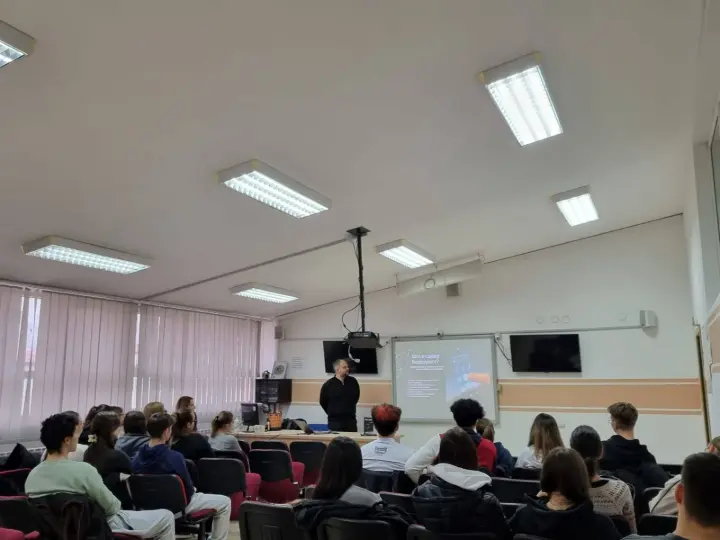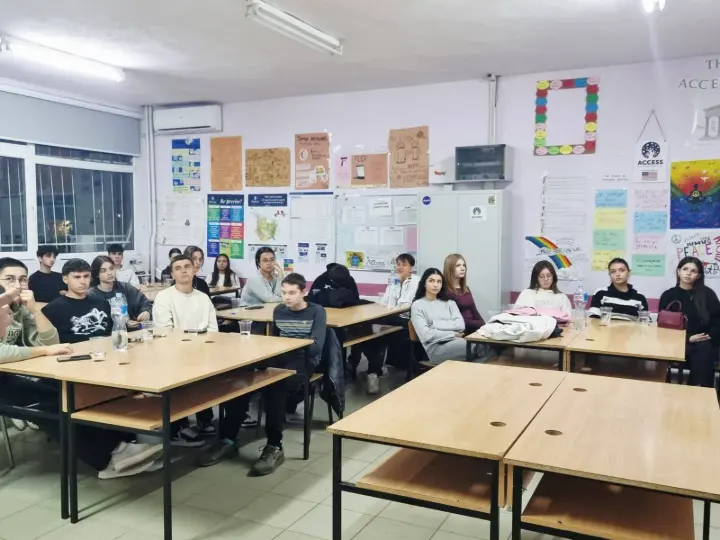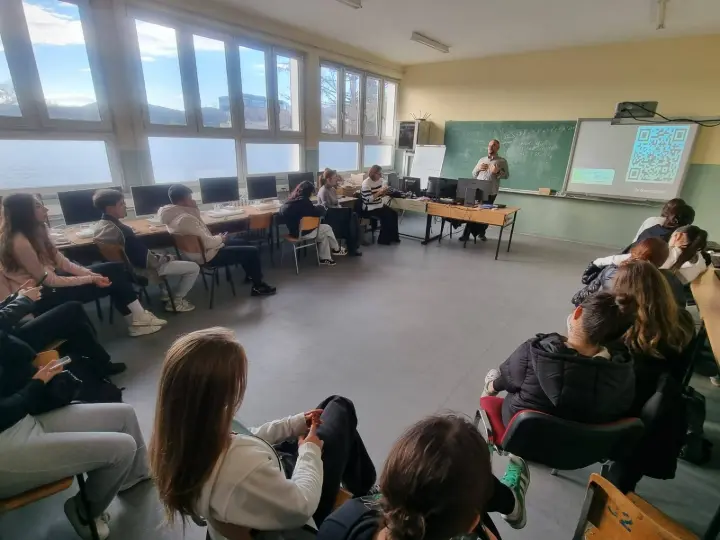Our president, Suad Seferi, led a series of training sessions for Access students in Veles, Probishtip, Radovish and Strumica through the Access project funded by the U.S. Embassy in Skopje and implemented by MCEC Skopje. The sessions focused on building awareness of cybersecurity risks and demonstrating practical uses of artificial intelligence, with the goal of equipping students with knowledge and skills they can use every day.

During the sessions, students explored how quickly digital risks can appear and why young users are particularly exposed. They reviewed real examples of personal data misuse, fake profiles, and phishing messages designed to trick them, and learned practical steps to stay safe, including protecting accounts, creating stronger passwords, and recognizing early warning signs of danger. The trainings emphasized simple, actionable habits that students can apply immediately in their daily online activities.

A key component of the program was artificial intelligence. Students discovered tools that support research, note taking, organization, and project planning. They learned how AI can help them study more efficiently, structure information, and improve the quality of their schoolwork. The sessions also focused on responsible and ethical use of AI, helping students understand how these tools can enhance learning without replacing critical thinking.

Across all four cities, students were actively engaged, sharing their own online experiences and asking thoughtful questions. Their contributions shaped the sessions and made the discussions more relevant, helping connect theoretical knowledge to their everyday digital lives. The interactive approach ensured that students left not only with practical guidance, but also with a sense of ownership over their learning and online safety practices.
These trainings are especially important because students are at the forefront of digital exposure. They rely on the internet for school, communication, social connection, and creativity, making them vulnerable to both cybersecurity threats and misinformation. By combining practical cybersecurity education with AI literacy, these sessions provide students with the tools to protect themselves, use technology responsibly, and develop skills that will support them both academically and personally in the years ahead.